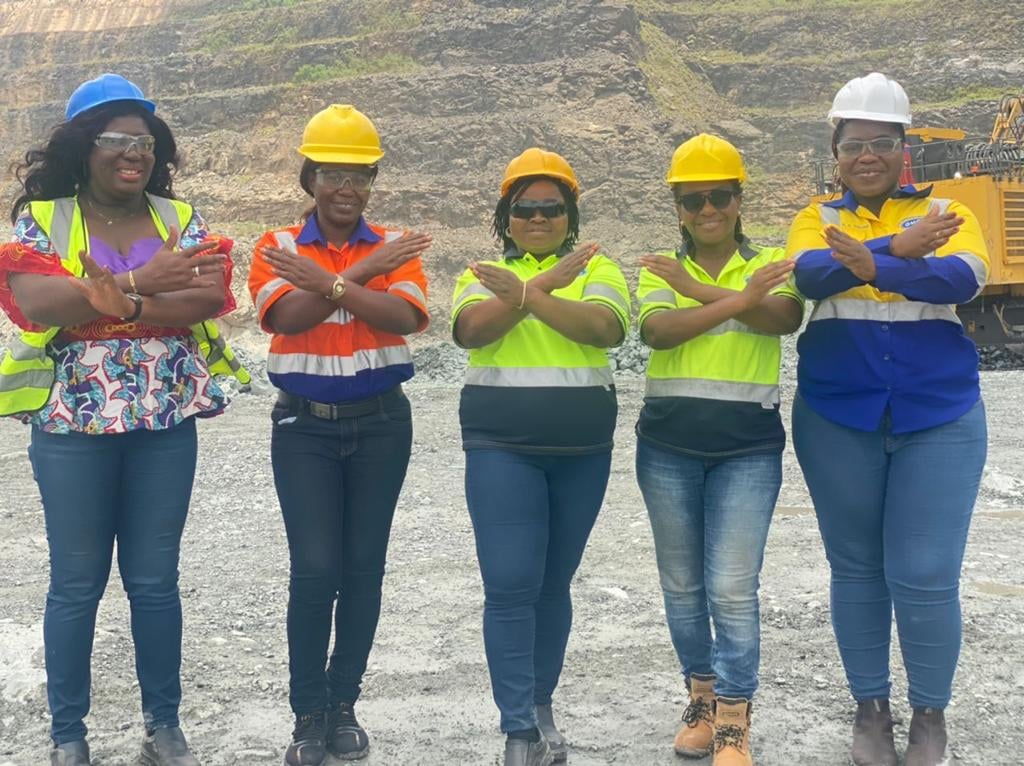21 April, 2022Today, IndustriALL launches the first chapter of its research on gender-based violence and harassment (GBVH), with a summary of the results from the mining sector. The research finds that having women in leadership positions is crucial.
The research in the mining sector is based on individual and group interviews with 21 women and two male leaders of IndustriALL-affiliated unions in South Africa (NUM and NUMSA), Colombia (Sintracarbon), and Canada (Unifor and USW).
The research finds that sexual harassment and sexual violence are pervasive in the mining sector. Women spoke about the remoteness and relative isolation of mining sites, which makes women more vulnerable to violence. Sexual harassment and sexual assault remain significant concerns for women workers.
Women are also overlooked for promotion, and have undervalued skills and lower earnings compared to men. In addition, women and men work and live in the same communities, making it harder to make complaints against a colleague or a supervisor.
Women’s low representation in mining jobs makes them particularly vulnerable to sexual harassment and sexual assault. Further, a lack of policies to address gender inequalities – or failure to implement them – sustains the masculinized culture of the workplace, which is also reflected in union structures and leadership.
“[Male colleagues and union comrades] question your dignity, attack you for lacking family values and they try and undermine your credibility and reputation,”
said Hidanora Pérez of Sintracarbon.
A consistent message in the interviews is the importance of women having leadership roles in unions. Union leaders also stressed the critical importance of women have responsibilities for collective bargaining, as this is where they can influence change.
“Women must be part of the negotiations as the branch chair is always male, we should make sure it is women who are at the table to discuss maternity and gender-based violence, otherwise it doesn’t get raised,”
said Mathapelo Khanye, national secretary for women in NUM.
Despite some positive developments, many women workers have not seen real change on the ground and in the workplace. Internal policies and mechanisms to address GBVH are considered largely ineffective and there was a general lack of awareness about complaints mechanisms, including whether the company even had a policy.
Domestic violence is a significant concern for women in mining. Every worksite should aim to have a policy on domestic violence, with paid leave and other support for survivors.
“If someone experiences domestic violence and they open up about it, we give them support. How do we get someone to open up about these issues, it is so awful to see them going through so much and we can’t help them as they can’t open up…we still have a lot to do,"
said a workplace union representative from South Africa.
Recommendations of the women interviewed include:
- the development of training to raise awareness about GBVH;
- the need for men take greater responsibility to end GBVH;
- the need to create workplaces based on respect and equality;
- the effective integration of GBVH into occupational health and safety, and
- the implementation of tools for risk assessment and safety mapping to prevent GBVH.
IndustriALL director for the mining sector, Glen Mpufane, said:
“This research presents an important milestone in the fight against the scourge of GBVH. Besides the invaluable contribution to the body of work on GBVH, it present a powerful perspective from women’s voices that are marginalized, unseen and unheard, made vulnerable by their position in the corporate and workplace hierarchy and in society.
“The recommendation for the effective integration of GBVH into occupational health and safety provides an important pathway to dealing with this scourge, given the pending repeal of the outdated Underground Work (Women) Convention, 1935 (No. 45), and the intention to mainstream women in mining into the Safety and Health in Mines Convention, 1995 (No. 176) and the Safety and Health in Mines Recommendation, 1995 (No. 183).”
Photo: Ghana Mineworkers' Union
